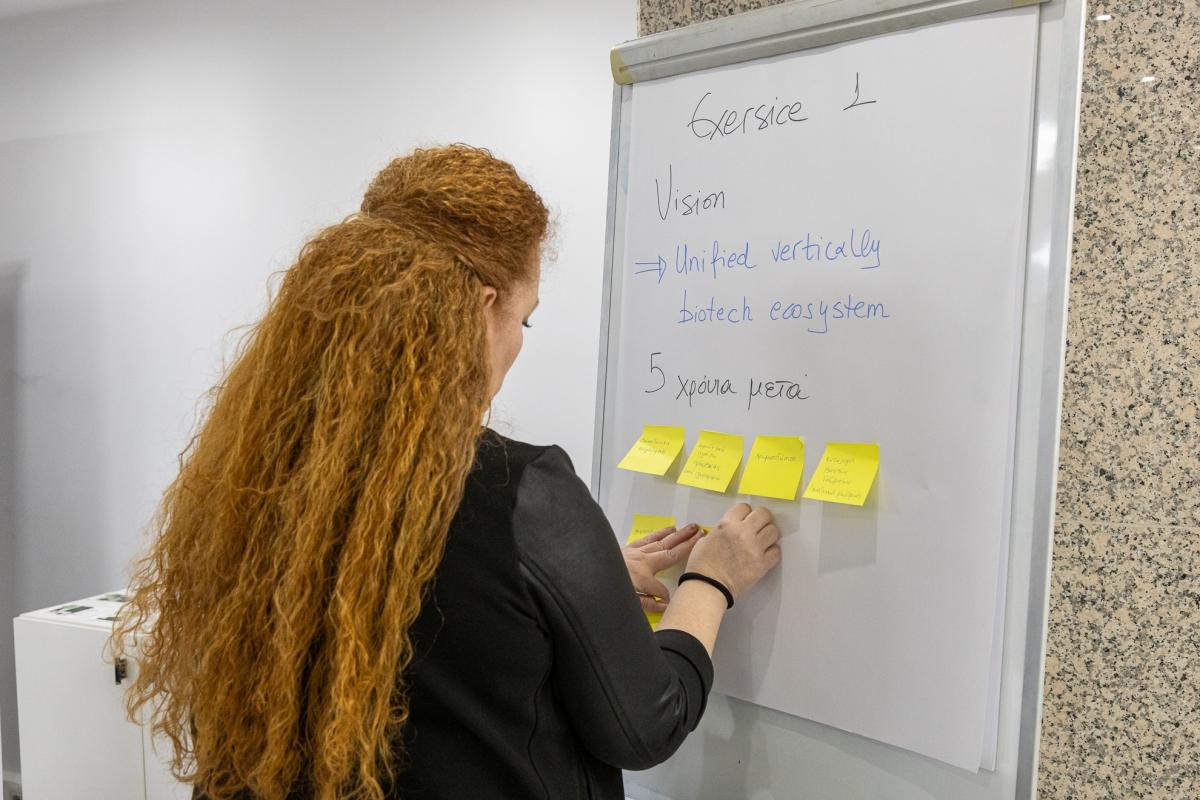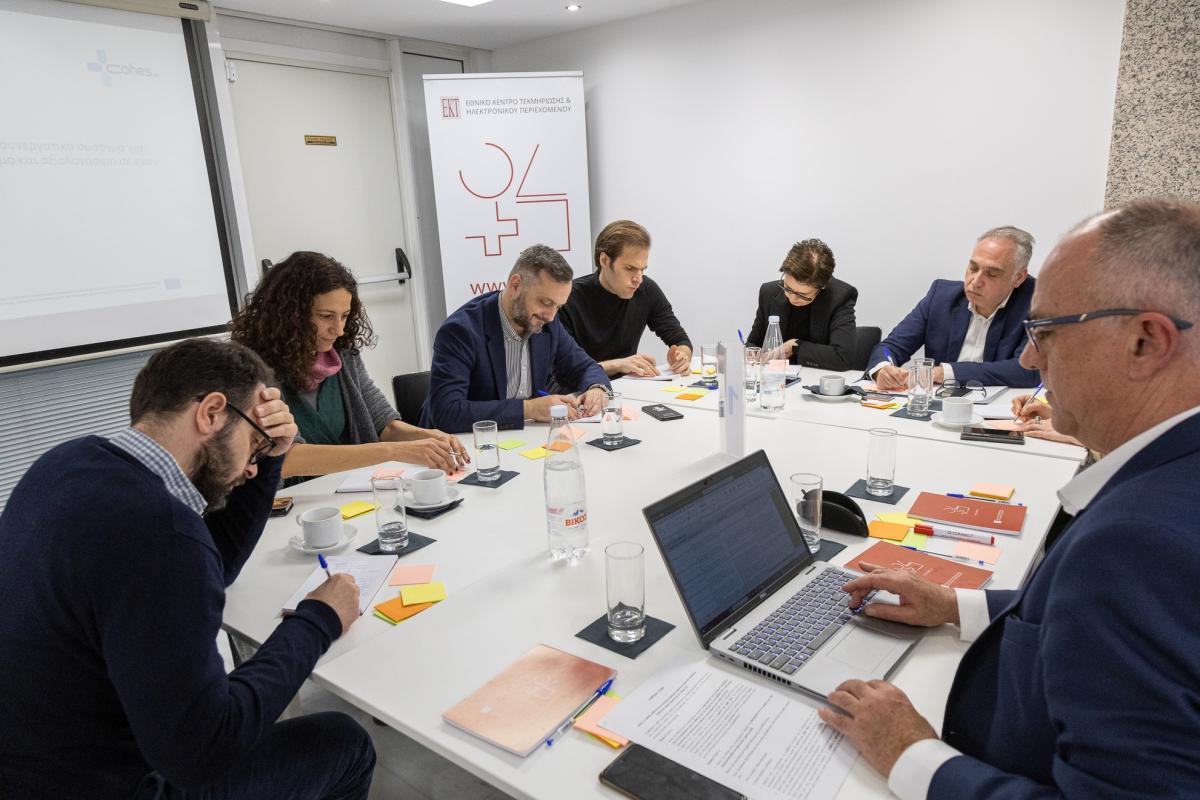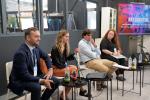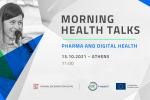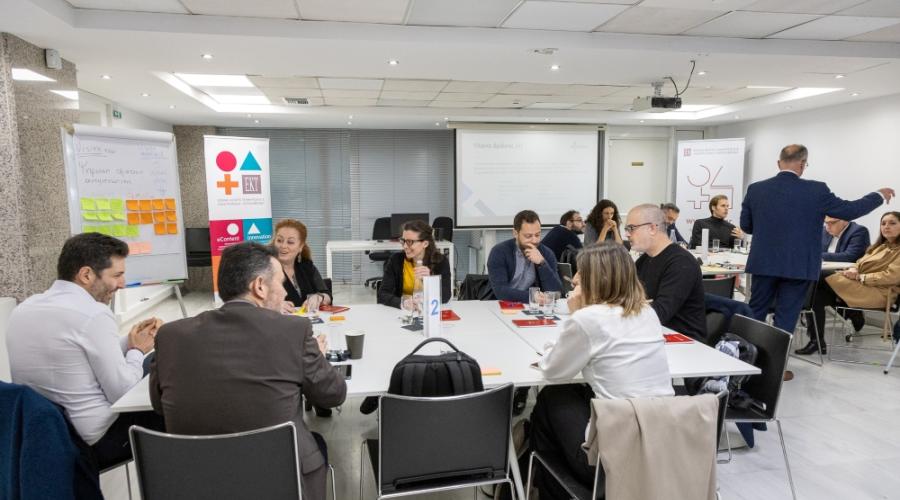
The 1st Co-Creation Workshop of the European project COHES.io on "Validating & Testing of Digital Health Innovations" was organized by the National Documentation Centre (EKT) on Friday, March 22, 2024.
This workshop marks the first of four in total workshops that will be implemented by EKT by the end of May, as part of the COHES.io project which fosters open innovation in digital health. Within this project, EKT is responsible for dissemination, communication, utilization of results, as well as interviews with key ecosystem stakeholders. In the four workshops, stakeholders in the healthcare innovation ecosystem will exchange knowledge, followed by a group of international experts who will analyze these results and develop an action plan.
Funded by the European Union, the COHES.io project (Connected Health Ecosystems via Open Innovation) started in January 2024 with the aim of eliminating barriers to open innovation in the dynamic landscape of digital healthcare. It seeks to enhance open innovation in three healthcare ecosystems in Europe, including the Attica Region in Greece.
Including the associated partner of Regional Development Fund of Attica (RDFA), 27 participants attended the meeting, representing all ecosystem actors. More specifically, in the onsite meeting were present high-level policy makers, pharma business and startups representatives, medical care providers, researchers and scientists, as well as representatives from patients’ associations.
The main goal of the roundtable was initially to validate the analysis of the innovation healthcare ecosystem and, secondly, to shed light on challenges and bottlenecks in the region with respect to validation and testing of digital health innovations in order to enhance the existing synergies or establish new collaborations, promoting open innovation for digital health. Third, the participants identified all strengths and opportunities for cooperation.
Participants were informed about the establishment of Interregional Working Groups (IWGs) and their activities. Additionally, they were were informed about the potential of using the Life Science Open Space (LSOS) Collaboration Platform to support the work and collaboration of IWGs and facilitate communication and knowledge sharing among regional ecosystem actors. Among the several challenges that need to be addressed in the Greek ecosystem, the difficulties of central coordination in the context of digital interconnection, was found to be of higher importance.
The biggest issue in relation to the latter has to do with the availability of data. There is a lack of information with respect to available databases (open or not), access is very limited and in the case of guaranteed access, interoperability is almost impossible. Another challenge arises from the fragmentation of the available information and of the responsibilities between agencies, institutions, and governmental bodies.
On the other side, opportunities and strengths relate to the considerable human resources and the multitude of relevant national and co-financed actions that can act as catalysts as data producers.
For more info about the COHES.io project, you can contact with Dr Sofia Xesfingi, sxesfing@ekt.gr and Marios Roidis, mroidis@ekt.gr.
